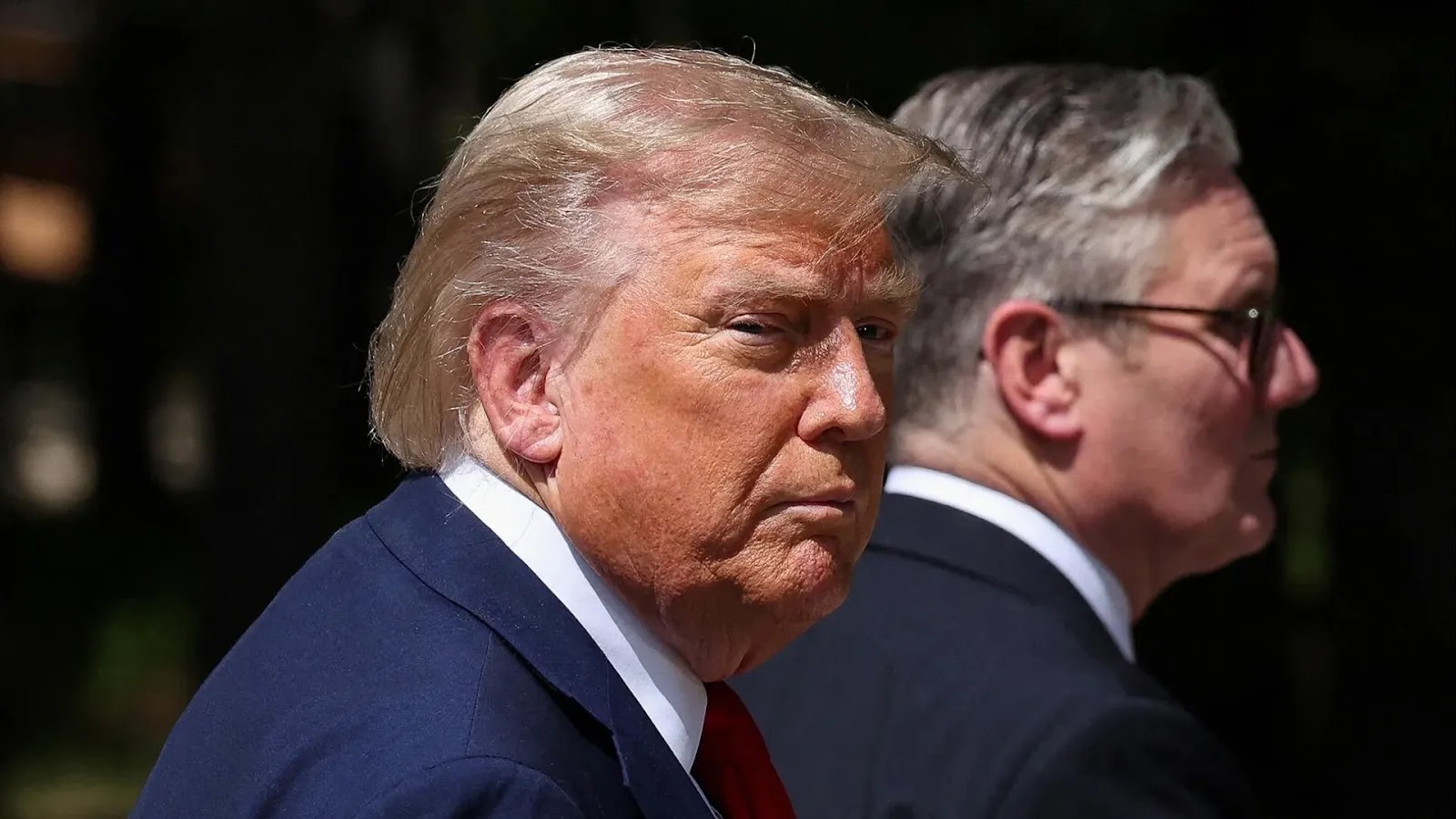
Trump’s Threats Toward Iran Clash With Public's Growing Anti-War Sentiment
As former President Donald Trump intensifies rhetoric about potential U.S. military strikes on Iran, new polling trends suggest the American public may not be on board with another Middle East war.Trump, posting on Truth Social, claimed that the U.S. now has “complete and total control of the skies over Iran,” and called Ayatollah Ali Khamenei an “easy target,” although he insisted he is “not going to take him out… at least not for now.” The former president also demanded Iran’s “unconditional surrender,” fueling speculation of imminent military action.
Isolationist Shift Among Americans, Especially Conservatives
For years, U.S. public sentiment—particularly among conservatives—has been drifting toward a more isolationist stance, skeptical of America’s role as global policeman. While Iran is still widely viewed as a national security threat, the willingness to use force remains low, especially in the absence of a clear and immediate danger.A 2019 Fox News poll found that 53% of Americans supported military action to stop Iran from developing nuclear weapons, versus 30% opposed. However, that support hinges on the perception that Iran is actually building a nuclear arsenal—a claim that, as of March, was directly contradicted by Trump’s own Director of National Intelligence, Tulsi Gabbard.
She testified that U.S. intelligence believes Iran has not resumed its nuclear weapons program, which was halted in 2003. Trump has since disputed that, but any mismatch between presidential claims and official assessments could undermine public trust in military action.
Polling Shows Concern About Iran, But Not a Sense of Urgency
Recent polling paints a nuanced picture. A 2023 Fox survey showed that over 60% of Democrats and nearly 80% of Republicans expressed concern about Iran obtaining nuclear weapons. A 2024 Gallup poll found that 93% of Republicans and 70% of Democrats saw the issue as a “critical threat.”However, a broader view of national priorities offers context. Pew Research polling in 2024 showed that far more Americans see China (64%) and Russia (59%) as significant military threats, compared to Iran (42%).
In another 2020 CBS News survey, only 14% of respondents felt Iran posed a threat that warranted immediate U.S. military intervention. The majority—64%—believed it was a threat that could be contained, while 17% didn’t see it as a serious threat at all.
Public Skepticism Informed by Past Military Interventions
Memories of the Iraq War still loom large in the American psyche, especially after the Bush administration’s failure to justify military action with credible evidence of weapons of mass destruction. Many fear a repeat scenario if Trump proceeds with strikes based on disputed intelligence.This caution is evident in reactions to Trump’s 2020 drone strike that killed Iranian commander Qasem Soleimani. While a slim majority approved of the action at the time, CNN polling showed Americans believed it made the U.S. less safe overall. A majority (53%) disapproved of Trump’s handling of Iran, versus 42% who approved.
Support Possible—But Only Under Certain Conditions
The data suggest that while Americans are alarmed by Iran’s nuclear ambitions in the abstract, they don’t necessarily believe immediate military action is justified. The public remains wary of sending U.S. troops into harm’s way without overwhelming evidence of an urgent, existential threat.That reluctance could change if new developments dramatically shift the narrative or if another provocation escalates tensions. Yet for now, even among Trump’s base, there’s notable resistance. Influential conservative voices like Tucker Carlson have criticized the idea of attacking Iran, signaling possible internal friction among Republicans.
Conclusion: Rising Tensions, But No Clear Mandate for War
As Trump continues to apply pressure and hint at aggressive military responses, the mood among Americans appears cautious and unconvinced. While they may acknowledge Iran as a long-term threat, there’s little evidence of strong public backing for launching another war in the Middle East—especially one without immediate justification.Any escalation from here would likely deepen political divides, reignite debates about executive war powers, and challenge how much influence public opinion still holds over foreign policy in a hyper-polarized America.




